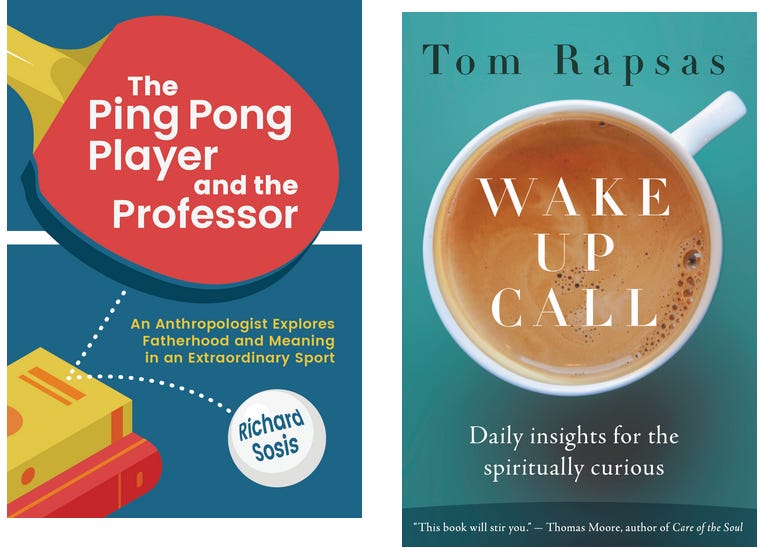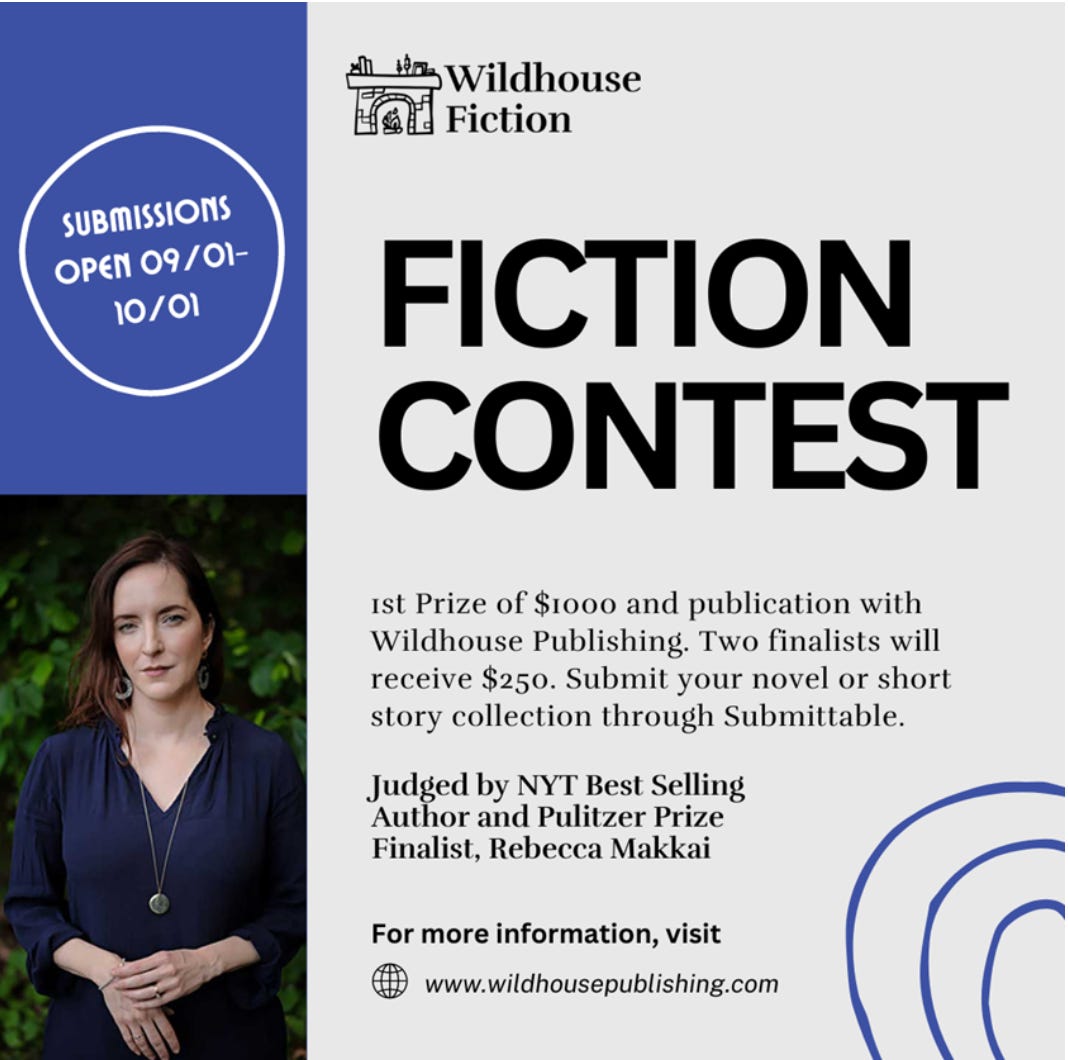A Short Course on Book Contests, Submission Fees, and New Indie Press Wildhouse Publishing
Novelist, DePaul professor, and editor Rebecca Johns weighs in
Hello fellow literary travelers -
Due to the timeliness of today’s topic, this week I’ve scheduled two posts instead of one. The book contest you’ll read about below is only open for a few weeks.
September’s agent list (#22), is scheduled for Saturday, and later this month, I’ll share interviews with fiction writers Rita Dragonette and Sue Mell (whose new story collection, A New Day, was officially released on Tuesday, 9/3). 📗
—
When I lived in Chicago, I taught at DePaul University with Rebecca Johns, whose novels Icebergs (a PEN/Hemingway finalist) and The Countess are excellent and engrossing (hope you’ll seek them out if you haven’t read them yet). Along with writing fiction, she continues to teach undergraduate and graduate writing courses at DePaul (the latter in the Master’s in Writing and Publishing program).
Recently she committed to donating her literary expertise and scant free time to Wildhouse Publishing, a new indie book publisher, as acquisitions editor. I talked with Becky about her work there a few days ago, the press’s mission, and its inaugural fiction manuscript contest, which is open for submissions through October 1. The winning manuscript will be chosen by novelist and Pulitzer Prize finalist Rebecca Makkai.
Christine/Bookish: Could you tell us a little about Wildhouse Publishing - who its founder is and why he decided to start a press?
Rebecca Johns: So, please forgive the little philosophical aside I’m going to make here for a second. Our founder is a professor of philosophy, theology, and ethics named Wesley Wildman whose long-term project is what he calls “expansive spirituality.” Wildhouse is part of the Just Horizons Alliance, a nonprofit dedicated to fostering greater understanding between and outside religious traditions using science, philosophy, and especially cross-cultural dialogue.
What that means from my perspective as a lapsed Catholic—and I’m also drawing here on the many conversations I’ve had with Wesley and the editorial team—is that we’re looking for stories by and about people who don’t necessarily fall neatly into one faith tradition or another, one spiritual practice or another. The “nones,” as we call them, are unaffiliated or loosely affiliated with a religious tradition. We make up about 25 percent of the population at present.
As a writer himself, Wesley also had a less than ideal experience with a Big Five publisher and wanted to offer a more personal, hands-on experience for authors. That’s one of our aims, to be extremely supportive of our authors. If we believe in a book enough to offer a contract, then we’re going to go all out to make sure it’s a success. We even have a full-time in-house publicist dedicated to getting books into stores and into people’s hands.
CS: Please share the details of the inaugural book contest the press is running from September 1 - October 1.
RJ: We want to introduce ourselves to the fiction community and, we hope, find some excellent work to publish. The contest will accept novels and short-story collections of 150,000 words or fewer from September 1 to October 1. Rebecca Makkai, who is a New York Times bestselling author and a Pulitzer and National Book Award finalist, will be judging.
The winner will receive a $1,000 advance and a publishing contract. Two finalists will each receive $250 and will also be considered for publication. There is a $35 entry fee to help us defray the cost of the contest. You can submit entries here: https://whp.submittable.com/submit.
CS: Contest submission fees are polarizing, i.e. to charge or not to charge, but in many cases, they're charged because the press can't afford to pay the judge and/or award the prize money without them. Would you share some insights?
RJ: That’s definitely true in our case. I know a lot of writers won’t submit to a contest with a judging fee. I get it. I’m a writer myself and would rather not pay a fee if I can avoid it, though I have done so many times in the past. We’re a startup. I’m donating my time and labor to this endeavor because I believe in the mission, and because I believe there are a lot of writers out there whose books deserve a wider audience. The fee will support that mission.
Lastly, you’ll find Wildhouse’s submission information page here. As stated on their ste, the press is open for fiction and poetry manuscripts and nonfiction proposal submissions in January and February, and sometimes for a month in the fall.




